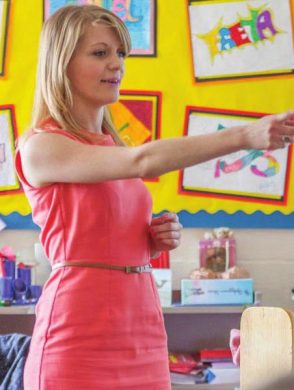
Oppositional Kids in the Classroom
Can you imagine a society where the only power police officers have is to appeal to drivers not to park in forbidden zones? To reason with and persuade them?
Motorists would quickly realise they can park as they wish and the police are just a powerless inconvenience. But this is the kind of situation that prevails in schoolrooms with a fraction of oppositional children.
“Nowadays, there are only very limited sanctions one can impose on unruly children in the classroom. Behavioural problems in the classroom increase when nothing effective is done about it.”
These kids can ruin a lesson and they know they can get away with it. No teacher wants to admit she is having major problems with class control. No international school administration wants to advertise the fact it has a percentage of unruly classes.
It is in the interests of both not to say anything at all, to keep things quiet and pretend that everything is satisfactory. But doing this means the problem will continue unabated.* The sad fact is many teachers cannot control unruliness in certain classes, not because they lack willpower or strong intentions, but because they have very little support from parents and the administration.

Nowadays, there are only very limited sanctions one can impose on unruly children in the classroom. Behavioural problems in the classroom increase when nothing effective is done about it. The most difficult age group is between 13 and 16. At this age, young people discover they have a lot of power.
They experiment with opposition to see how far it can go. You only need three oppositional children in a class in order to ruin the lesson plan – the teacher is distracted from instruction and has to spend an inordinate amount of time on classroom management.
This means the other children get far less attention and an atmosphere of cooperation declines; inevitably, standards begin to drop. Oppositional kids in the classroom These days, bad behaviour by teenagers is not really penalised.
The child may be sent out of the room. They may suffer a tiny sanction. In the worst cases they will be sent home. Teachers, in our time, over a space of a few decades, have effectively been disempowered by parents and administrations. It is no wonder we cannot control a class – we don’t have the means to do so. Reasoning and persuasion does not work.
Children feel free to rag each other around, to shout abusive language, to defy the teacher, and to bluntly refuse any kind of cooperation. It is infectious – once gaining momentum, it can spread. Children are quick to spot any weaknesses inside the system. They know who they can mess around with and who they cannot. Foreign teachers are an easy target.
Teenagers are quick to discover when there are few serious consequences to bad behaviour and delight in their power to extend distress, to disseminate further discord. In many instances when a child is “acting out” it can be traced to problems at home. If the parents are always fighting or threatening to divorce, children lose heart, lose confidence in their supervisors, and domestic emotional conflict creates resentment that is taken out on adults
at school.
In Thailand, the overseas wife may be frustrated and bored because she has few meaningful social contacts and cannot find a decent job. The husband may be flirting with attractive young nationals at work and coming home late, smelling of alcohol.
There may be a general lack of integration and adaptation to the overseas location (Bangkok counsellors are inundated with clients with problems of this sort). Before you enrol your child in an international school – or decide you want to change one – try a little “due diligence”. Ask around first for reports from the other parents about what is happening in the classrooms – how much time the teacher is spending on “classroom management”. Ask the kids. Sometimes they will be surprisingly honest.
Bad behaviour in the classroom can be curtailed, but it requires a concerted effort from all concerned. There is no use in blaming just one person – it is an institutional practice as a whole that needs considering. It is our joint effort that needs revising. If you want your child to do well at school, and get value and results from your investment, make sure you support the teachers in what they are doing – give them your support for effective discipline in the classroom, and make it generally known.
John Wilson taught in an international school, in Bangkok, for five years. He now restricts his activities to mature students in higher education.
“If you want your child to do well at school, and get value and results from your investment,
make sure you support the teachers in what they are doing – give them your support for effective discipline in the classroom, and make it generally known.”
*Along with hyperactivity and attention deficits, problems are associated with oppositional defiant disorder. The prevalence of ODD (e.g., defiance, anger, and noncompliance), is based on international research by Angold and Costello, who concluded it is a ‘gigantic public health problem’ with 5–10% of children aged 8–16 years having notable behavioural problems.



